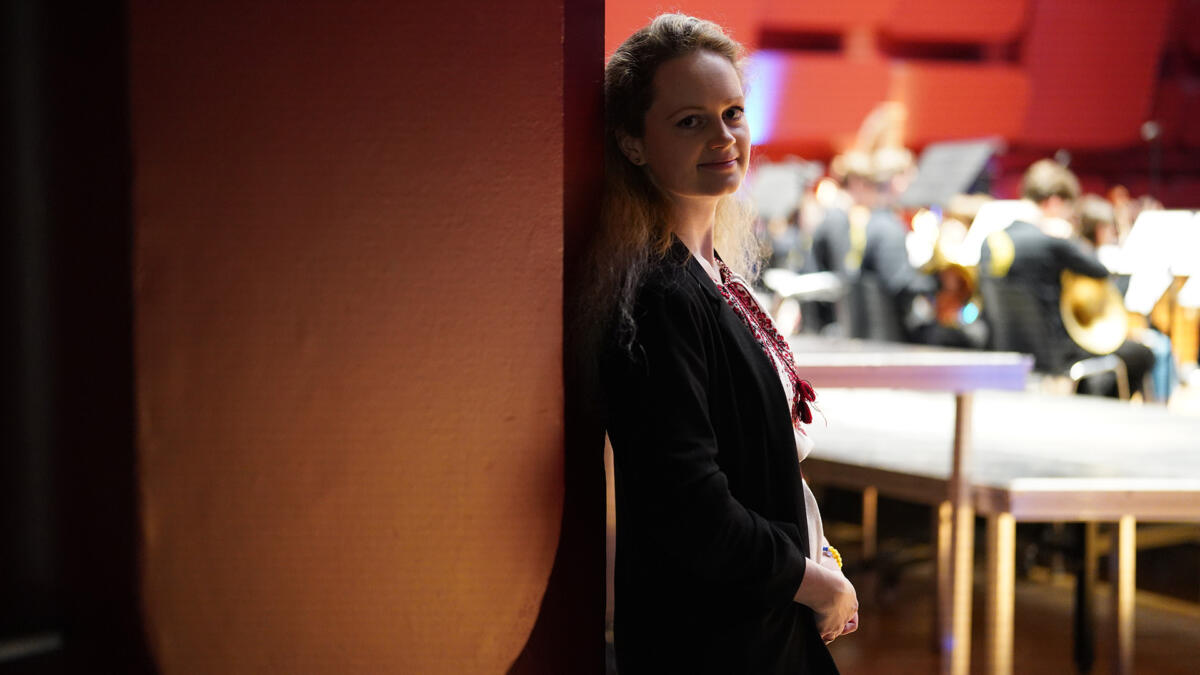General manager Alexandra Zaitseva: Concerts are our opportunity to speak up for Ukraine
General manager of the Youth Symphony Orchestra of Ukraine Alexandra Zaitseva sheds light on orchestra’s role in promoting Ukrainian culture, especially during challenging times.

Can you tell us about the background of the Youth Symphony Orchestra of Ukraine and the special concert you’re currently involved in?
The Youth Symphony Orchestra of Ukraine is a unique project in Ukraine. Following the initiative of the renowned Ukrainian conductor Oksana Lyniv it began in 2016 with auditions calling for talented young musicians to join. Since 2018, we’ve functioned as a fully Ukrainian orchestra, engaging in various projects and touring nationally and internationally.
Currently, we’re immersed in this special “Let there be Light” concert, bringing together exceptional Ukrainian music students from across Europe for a performance that unites two cultures on one stage. These students are now joining the Sibelius Academy Symphony Orchestra.
They are essentially “All Star” Ukrainian student representatives from music schools and universities across Europe and Ukraine itself. While most are already scattered across the continent, we managed to coordinate their participation, with flying in directly from our recent tour in Germany.
How does the ongoing war in Ukraine impact the young musicians in the orchestra?
The war deeply affects each of us. We all have personal connections to the conflict, whether through relatives, friends, or teachers who are endangered. Despite this, we strive to remain positive, channeling our emotions into our music. Sometimes after concerts, youngsters can get emotional – even burst into tears. Then I try to find a moment to support them, just to hug them, to keep them in my arms or to give them a moment to be alone and give space for their emotions. I think this is very important.
We all see our mission in promoting Ukrainian culture, developing it and supporting the young generation. It really keeps us strong. Our young people also inspire me and all of us. I think it’s like an exchange: if we can support them, they support and inspire us as an organiser team. Right now, projects and concerts like the upcoming “Let there be Light” are really something special – just to have this opportunity to speak up for Ukraine.
The war deeply affects each of us. Sometimes after concerts, youngsters can get emotional – even burst into tears. Then I try to find a moment to support them, just to hug them, to keep them in my arms or to give them a moment to be alone and give space for their emotions.
I think that now for the moment the best thing is to is to help musicians individually and to support their needs, because the situation for each person is totally different. Somebody is struggling to buy a new instrument, somebody else to find a new place to study, or somebody wants to go abroad and take a master class but can’t afford it. So I think direct help is the fastest way to react. In the future we can dream about larger cooperation between institutions when it comes to rebuilding Ukraine.
You are very dedicated to promoting Ukrainian culture. How do you envision the role of arts and culture in times of struggle?
Arts and culture are essential in preserving our identity and uniting our nation. They provide a platform for expression, reflection, and solidarity. Through cultural exchange, we bridge divides and cultivate understanding. Our hope is that by sharing our music and our culture, we can paint a clearer picture of Ukraine to the world, beyond the headlines of conflict.
Arts and culture can be applied to different spectrums in this really struggling situation. To be a nation means not only to be born on a particular territory, but to be united by spirit, language and culture.
Ukrainians are now fighting for their identification and their own nation, and arts and culture play a very significant role in that. They are also very powerful tools to speak about the situation, to reflect it. Culture can give us space not only to live this situation personally, but also look at it in a large historical and cultural dimension.